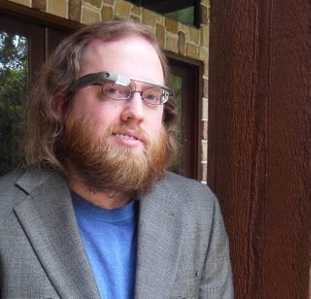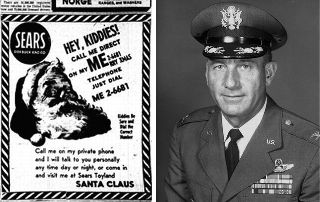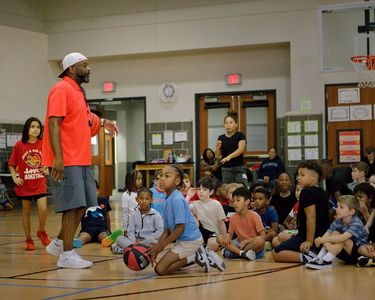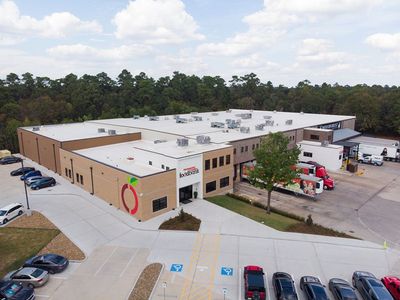- Sections :
- Crime & Public Safety
- Restaurants & Food
- Sports
- More
Categories
Noted autism advocate believes new headset technologies may prove to break barriers in the mental health industry

HOUSTON, Texas - The tech world was all abuzz last month as news spread that Google had quietly introduced the much-anticipated second generation of its revolutionary Google Glass technology. Reports indicate that Google is testing its Glass 2 with businesses and software developers, slating a consumer version for some time next year. As Glass 2 and other head-mounted technologies position themselves to sweep the tech world, observers are sensing the potential for far more than just better Internet surfing and more realistic gaming. “For those on the autism spectrum, smartglasses will provide a means to access and navigate the neurotypical world that was never possible before,” said Paul Louden, autism advocate and host of the “Theories of Mind” radio program that can be heard on Business Newsmakers Radio 1110 KTEK Tuesdays at 10:00 a.m.
Louden was one of the beta-testers for the original Glass Explorer program in 2013. Google abruptly pulled the groundbreaking headset from the market last January, ending the Explorer program in order to revamp and improve the device. Since then, Louden and others in the autism community have eagerly awaited the release of Glass 2.
Glass 2, along with similar devices such as the recently released Sony SmartEyeglass and the Microsoft HoloLens, could swing open the door to the outside world for those with neurological disorders, said Louden. “We are just beginning to scratch the surface regarding what smartglasses can do to assist and enhance the lives of those with autism. I believe they will help ‘crack the code’ of today’s complex social environment so that those with autism can lead a fuller life.”
Louden, who at age 23 was diagnosed with autism, believes these head-mounted technologies will alleviate some of the stress and confusion experienced by those with neurological disorders as they attempt to make the social judgments necessary for more independent daily living. Louden said that already, smartglasses applications such as “Empowered Brain Suite for Autism” from the technology company Brain Power are teaching autistic children to better interpret the facial expressions of others around them. There are apps that teach facial modeling to help wearers learn to better express themselves to others. There are sensors that can detect whether the wearer is making eye contact with others, a skill that is difficult for those with autism. Louden said many of these apps collect data and provide feedback to parents and teachers that can make the learning environment even more effective.
“Many autistic children display an affinity for technology. Instead of taking them deeper into the virtual world, these devices will make it possible for those with autism to more actively participate in the real world,” said Louden.
For more on Paul Louden and his work to increase autism awareness and understanding: Visit www.theoriesofmindradio.com. Listen to “Theories of Mind” radio with Paul Louden, Tuesdays from 10 to 11 a.m. on Business Newsmakers Radio 1110 KTEK-AM, a Wall Street Journal Radio Network, Bloomberg Radio Station in Houston, to learn more about mental health challenges in the news today and how differences shape our lives.
Google’s “Glass 2” could unlock massive potential in mental health field
Louden was one of the beta-testers for the original Glass Explorer program in 2013. Google abruptly pulled the groundbreaking headset from the market last January, ending the Explorer program in order to revamp and improve the device. Since then, Louden and others in the autism community have eagerly awaited the release of Glass 2.
Glass 2, along with similar devices such as the recently released Sony SmartEyeglass and the Microsoft HoloLens, could swing open the door to the outside world for those with neurological disorders, said Louden. “We are just beginning to scratch the surface regarding what smartglasses can do to assist and enhance the lives of those with autism. I believe they will help ‘crack the code’ of today’s complex social environment so that those with autism can lead a fuller life.”
Louden, who at age 23 was diagnosed with autism, believes these head-mounted technologies will alleviate some of the stress and confusion experienced by those with neurological disorders as they attempt to make the social judgments necessary for more independent daily living. Louden said that already, smartglasses applications such as “Empowered Brain Suite for Autism” from the technology company Brain Power are teaching autistic children to better interpret the facial expressions of others around them. There are apps that teach facial modeling to help wearers learn to better express themselves to others. There are sensors that can detect whether the wearer is making eye contact with others, a skill that is difficult for those with autism. Louden said many of these apps collect data and provide feedback to parents and teachers that can make the learning environment even more effective.
“Many autistic children display an affinity for technology. Instead of taking them deeper into the virtual world, these devices will make it possible for those with autism to more actively participate in the real world,” said Louden.
For more on Paul Louden and his work to increase autism awareness and understanding: Visit www.theoriesofmindradio.com. Listen to “Theories of Mind” radio with Paul Louden, Tuesdays from 10 to 11 a.m. on Business Newsmakers Radio 1110 KTEK-AM, a Wall Street Journal Radio Network, Bloomberg Radio Station in Houston, to learn more about mental health challenges in the news today and how differences shape our lives.
Comments •

















